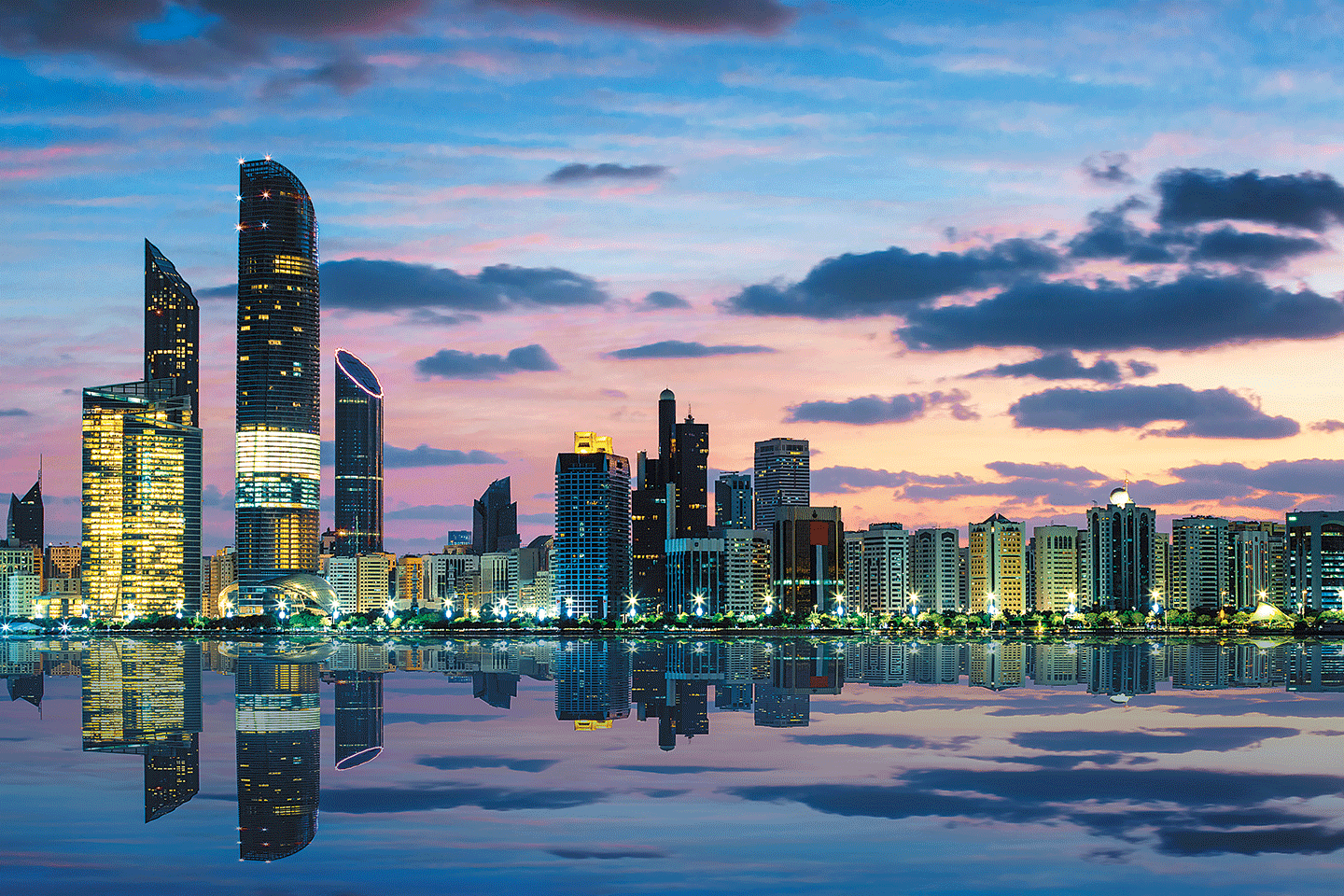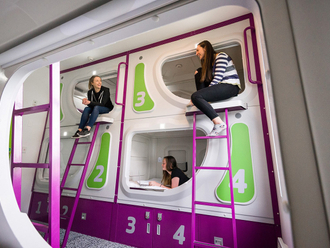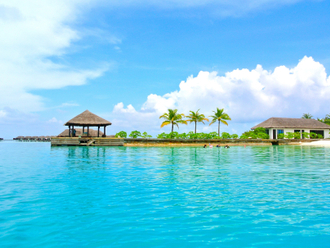
Oil has been the source of wealth for the UAE’s largest emirate and its capital, Abu Dhabi, for decades. But those times are seemingly over.
Not just since the latest oil price slump, the Abu Dhabi government has always been aware that nothing but a diversification of its economy can lead to future growth and create a foundation to fuel prosperity for generations to come.
In the Abu Dhabi Economic Vision 2030, the leaders have clearly defined a road map for economic progress whose nucleus is diversification away from hydrocarbons, aiming to increase the non-oil sectors’ contribution to GDP from the current 48.6 per cent to at least 64 per cent. That way, Abu Dhabi is working on building a sustainable economy through creating new high-value sectors, by strengthening its role as a financial centre, investing heavily in infrastructure, focusing on education and skills training, and encouraging entrepreneurship and small and medium enterprises, as well as other non-hydrocarbon sectors such as construction, manufacturing, >
retail and wholesale trade, and, to a lesser extent, the defence industry.
Economists are convinced Abu Dhabi will see a real push towards privatisation of industries, continued infrastructure investment and alternative energy development. However, transforming the emirate’s economy is a huge task and will require strong incentives, especially to create new industrial sectors and attract companies and professionals from all over the world.
Bigger role
Fahd Saeed Al Raqabani, Director General, Abu Dhabi Council for Economic Development, a key player in achieving the goals of the emirate’s vision, says the private and industrial sectors will have a much greater role in the future. “Diversification is central to Abu Dhabi’s economic strategy. By decreasing reliance on the oil sector, which is subject to price volatility, steady long-term growth can be maintained,” he says.
Abu Dhabi in its economic transformation plan is looking at certain role models. Norway, which has an oil output comparable to Abu Dhabi, “presents a case of channelling oil revenues for local economic development, nurturing a well-diversified economy and maintaining disciplined fiscal policies”, the vision states. Additionally, Ireland is of interest for Abu Dhabi in developing a diversified, knowledge-based economy and in its success in investment attraction. New Zealand is also being looked at as the country has “successfully developed a relatively large export base, which is also of interest for Abu Dhabi”.
With regard to the financial sector, Abu Dhabi is trying to follow the examples of Singapore and Hong Kong.
A lot is already happening. The emirate has created five Special Economic Zones that grant generous incentives, a tax-free environment and hassle-free business registration, which is essential for many investors. The zones cover specific industries including logistics, manufacturing, media, green technology and financial services.
Major players
Among the largest projects helping in diversification are the $7.2-billion (Dh26.4 billion) Khalifa Port and the Abu Dhabi Airport Free Zone — both as logistics and trading hubs — as well as the Khalifa Industrial Zone Abu Dhabi, a free zone designed to become a key pillar in the emirate’s economic transformation with its anchor tenant Emirates Aluminium, BRF (Brasil Foods) and Bauer Group. Other big industrial corporations are Emirates Steel and Borouge. More are under development through investments by state-owned industrial unit General Holding Corporation, or Senaat.
Al Raqabani says future development strategies focus on a total of ten industries and clusters including aerospace, renewable energy, semiconductors, steel, aluminium, engineered metal products, petrochemicals and plastics products.
“Supporting this strategy are Abu Dhabi’s industrial zones, which have developed world-class infrastructure,” he says, adding that there are plans to push the UAE’s aluminium output, as well as enlarge the industrial portfolio in steel and copper, building basics and food and beverage operations.
Green tech
Renewable energy is another key focus in the form of Masdar City, which targets industries in green technologies, sustainable energy, waste management and related services. Key players such as Siemens, General Electric and Mitsubishi are already tenants in the city.
Masdar Institute, the science and technology unit of Masdar City, has a strong focus on research and development and innovation. Dr Steve Griffiths, Executive Director of the Office of Institute Initiatives at Masdar Institute, says the institute “places a major emphasis on contributing to developing the UAE’s innovation ecosystem in order to achieve sustainable economic growth from innovation”.
To achieve this, he advocates combined efforts of various stakeholders, including business and commercial entities, state-owned enterprises, large foreign companies, as well as SMEs.
Dr Griffiths, speaking at the Defence Innovation and Technology Conference, held in Abu Dhabi last month, said Masdar Institute’s current partnerships also encompass the aerospace and defence sectors including collaborations with Boeing, Mubadala Aerospace, Tawazun, Lockheed Martin and other leading corporations. Through these collaborations, Masdar Institute continues to drive innovation in areas as directed by the UAE and Abu Dhabi economic development strategies, he added. n






